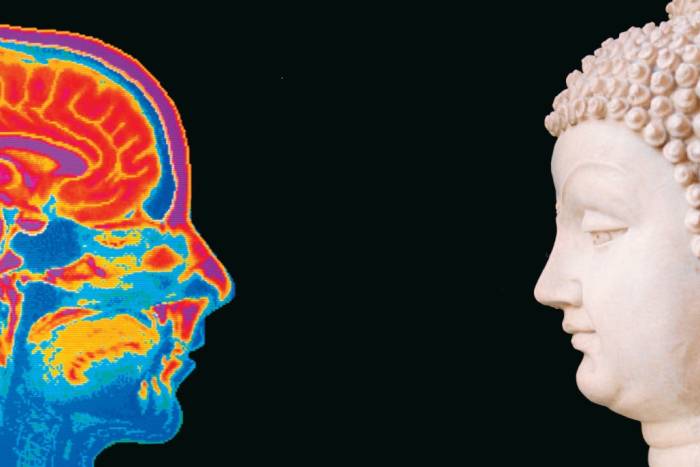Sun Tzu's the Art of War and the Knowledge of the Self
The famous battle manual is still valid for strategic thinking and for the victory over one’s self.
The Art of War by Sun Tzu is the oldest known manual of military strategy. It dates from the 4th century B.C. and the practical applications of the Chinese strategist have served as an inspiration to both modern-age combatants (it reached the West in the 18th century) and leaders and entrepreneurs of all kinds.
War, as understood by Sun Tzu, is inevitable, but which must be faced by thinking about victory and not persistence. Winning is everything in an extreme situation, and there are no half measures: any other outcome apart from victory presents the possibility of being defeated. The supreme art of war is deceit: the definitive victory is that which is won without even venturing out onto the battlefield.
But even if we have nothing to do with the military life, the advice in The Art of War is still relevant to the resolution of all kinds of conflicts. Written many centuries before The Prince by Niccoló Machiavelli, The Art of War warns us against the naivety of, by not seeing conflict, failing to prepare for it. The first victory for Sun Tzu is the one that the strategist claims over himself, against their own character and belligerence. War is necessary, but what is at stake are lives and resources, so that one enters into conflict knowing how to be efficient and practical; an army, Sun Tzu says, is like a fire: if the strategist does not know how to extinguish it in time, it will consume him.
The war in our daily lives is the untiring battle against our own ignorance, against acquired habits and all that separates us from our goals. What this manual of martial arts continues to advise us is to analyze our own character, to get to know it and to not sabotage ourselves; it also emphasizes strategic thinking, the correct management of resources and energy. This is necessary both in the short and long term: the accent is placed on the importance of knowing our own strengths and those of the enemy, at any time.
Reading The Art of War could make us a little paranoid: not all our adversaries are our enemies. In terms of the knowledge of the self, we could think that the enemy is all that is in ourselves, due to naivety or to being unknown to ourselves, threatening our survival and our plans. Fear, apathy, indiscipline, cowardice and a lack of responsibility are all due to a lack of self-knowledge, or as Sun Tzu says, to a lack of strategic vision.
A leader that can carry an army to victory is first and foremost a winner over themselves, someone who has been able to see themselves and recognise themselves. The first victory is internal. Those that follow are simply the natural and almost inevitable consequences of that victory over ourselves that we win again and again, day after day.
Related Articles
Why shrinking the size of life is synonymous of well-being
One of the great misunderstandings regarding modern spirituality is that to achieve it requires many things: readings, food, exercise, travel, groups and techniques. But perhaps it should be suggested
What is energy medicine yoga?
Energy Medicine Yoga (EMYoga) is slightly different from other types of Yoga, but it provides the same benefits in addition to a few very specific ones. One of them is that it gives you much more in
Red tea, the best antioxidant beverage on earth
Red tea is considered to be the most unusual of teas because it implies a consistently different preparation process. ––It is believed that its finding came upon surprisingly when traditional green
Is the internet on the verge of self-awareness?
More than 50 years ago, Marshall McLuhan described technology as an extension of our brains, constantly mutating and branching out. “These new media have made our world into a single unit,” the
How art can help us to age, healthy
Perhaps many of us already well know the formula for aging in health and wellness. A balanced diet and, as much as possible, one that’s natural. Keep our brains active and stimulated. Preserve and
Earthanima: documenting the living language of nature
The basic intuition that the Earth is alive and that nature has a language through which it communicates with us is what prompted this wood-art project named Earthanima. For the past couple of years
Dialogue with the Dalai Lama on science and spirituality
The Dalai Lama has been interested in science since he was a child. Over the years he’s visited many laboratories and has attended conferences that discuss consciousness from the scientific point of
Brian Eno's literary recommendations to rebuild society
Artists and authors often get asked what books or records they’d take with them to a deserted island. On principle, this is naturally an extreme anthology: urgency and tragedy guide its selection. It
Bill Mollison, natural ideologue and father of permaculture
Permaculture has established itself as a path towards communitarianism, but one that is in full symbiosis with nature. In practice, it is more than just a combination of agriculture, horticulture
A New Year's resolution for the earth
Worrisome quantities of waste are generated by human populations. Especially in cities, these have reached unprecedented and alarming levels. A largely uncontrolled practice, it affects everything on










